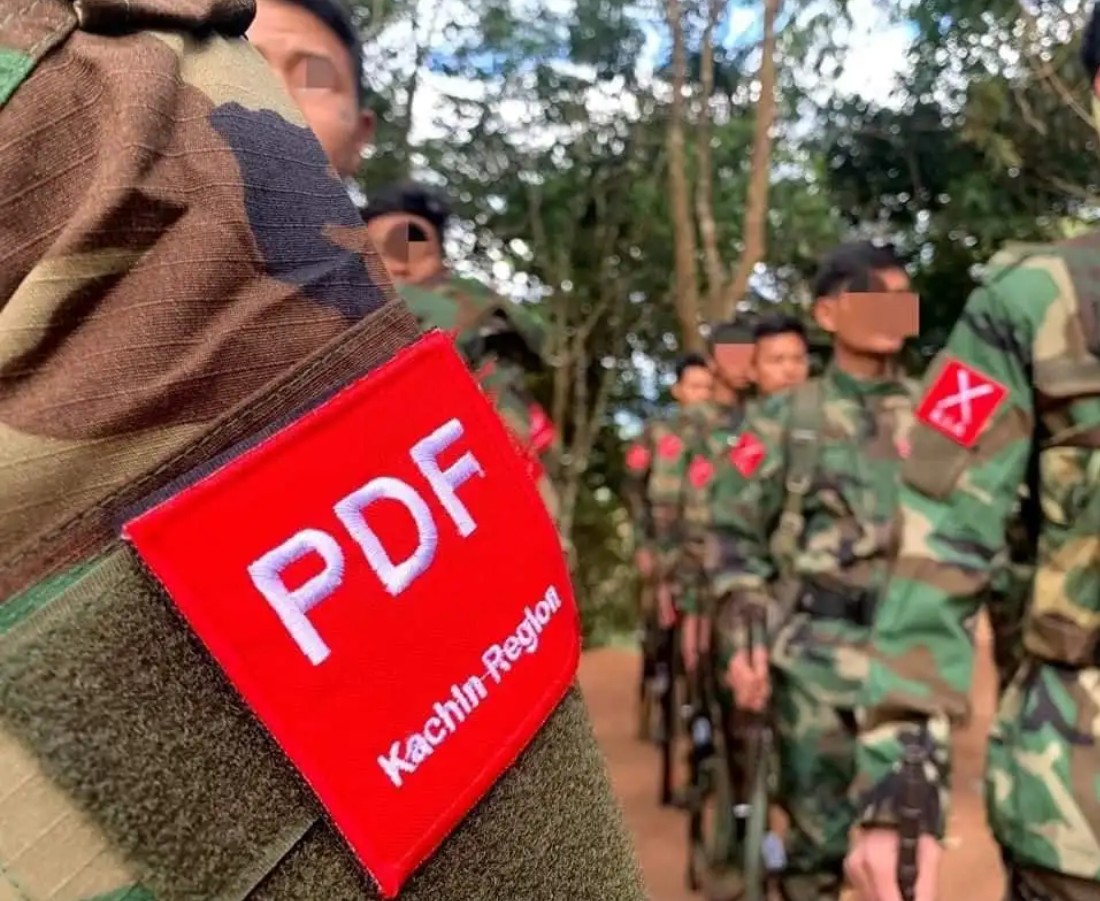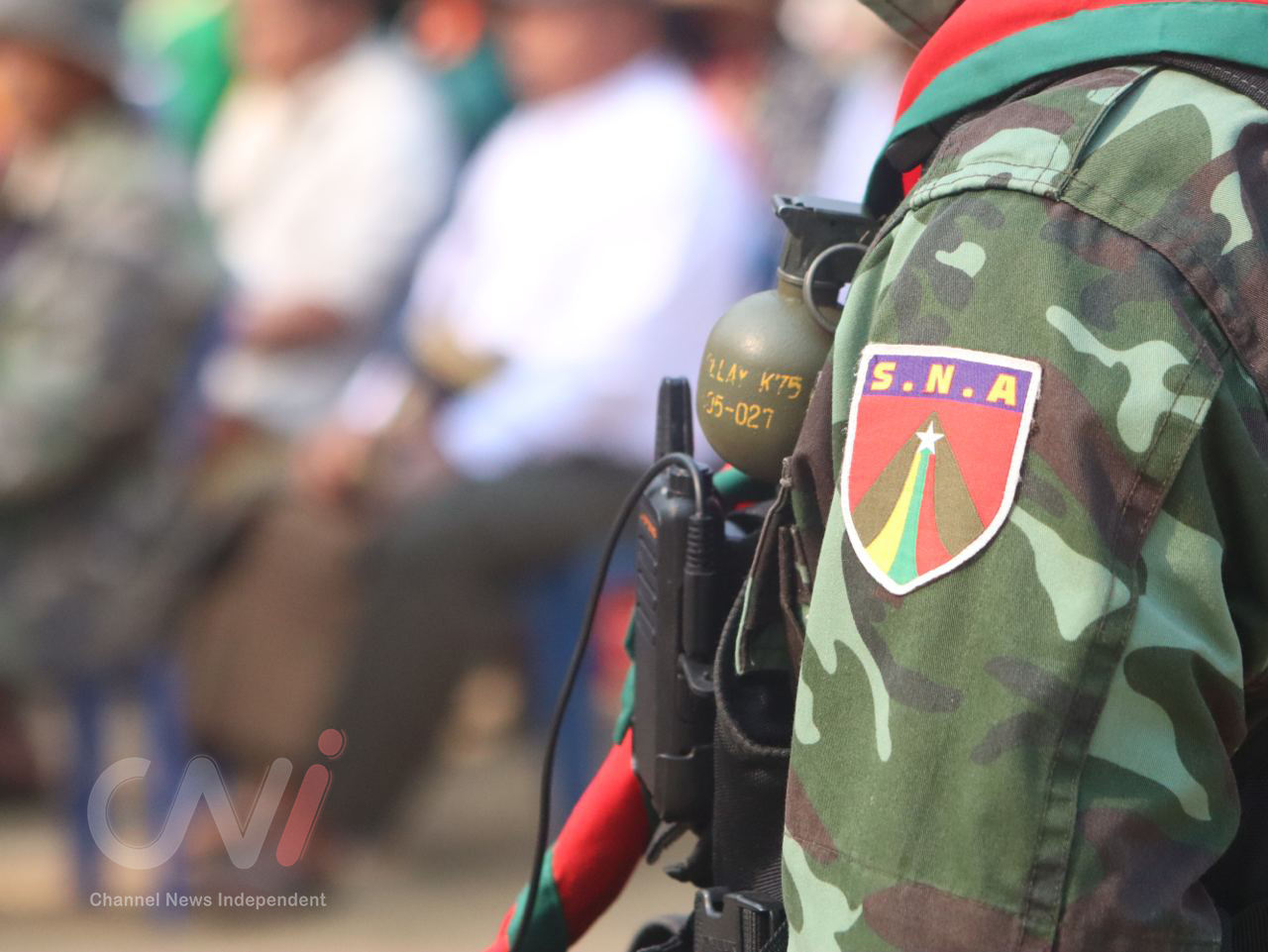CNI News
22 July 2025
It is urgently important to amend the Nationwide Ceasefire Agreement (NCA) to reflect the current situation and to designate buffer zones for ethnic armed groups (EAOs), Myanmar political analyst Dr. Aung Myo told CNI News.
Currently, fighting is ongoing in Myanmar between ethnic armed organizations (EAOs), Spring Revolution forces, the People's Defense Forces (PDF), and the Myanmar Tatmadaw, and all of them are trying to gain control of territory.
The SAC needed to designate buffer zones for the EAOs so that clashes could be prevented between the two armies and according to the 2008 Constitution, suitable powers should be provided to the EAOs, said Dr. Aung Myo.
“One of the key points in the NCA is that a buffer zone should be created between the two sides. For example, the Wa people live freely on the other side of the Salween River in their own territory. They also collect money. They do it based on their position. The KNU can't do that. In its border areas, both the Tatmadaw and the KNU have controlled. No one has full control. Then the KNU also collect money to support his group. When that happens, there will be clashes between the two sides. That's why it's very important for us to define the territory for the EAOs. Another thing is that we should talk peace to the EAOs. But I think it's more important to reform what needs to be reformed than the peace talk. I see a weakness in that area. For example, we should provide the states with the opportunities that are in the 2008 Constitution," he said.

While the KIA-PDF joint force
The government led by U Thein Sein offered a ceasefire on August 18, 2011, and held talks with 21 ethnic armed organizations.
Then, in 2011-2012, state-level and Union-level ceasefire agreements (Bilateral) were signed with 14 ethnic armed groups. In 2013, negotiations for the NCA agreement began, and a draft of the NCA agreement was received in August 2015.
After receiving the draft NCA, it was signed by the KNU, RCSS, ALP, DKBA, KNU/KNLA-PC, PNLO, CNF, ABSDF on October 15, 2015, and by the NMSP and LDU on February 13, 2018.
The NCA was signed on October 15, 2015, during the Thein Sein government, and will be 10 years old on October 15, 2025.
The armed groups that signed the NCA pointed out that some of the processes under the NCA agreement were only able to be implemented until 2020 and have been halted since then until today.

While seeing the SNA
Furthermore, since the NCA is internationally recognized, if it is to be revised, it would be more natural to include all those who participated in the initial ratification of the NCA, U Thein Tun Oo told CNI News.
“I think we should renegotiate and amend the NCA with those who were involved in both the signing and drafting. I don’t want to comment on how it should be amended or how it shouldn’t be amended. Because the NCA actually worked as intended? I mean, did this agreement really work for us? If it worked, we should continue with it. If it doesn't work, then I think we'll have to decide whether to fix it or not, depending on the ground conditions," he said.
If the NCA agreement is revised, it might be revised when the Hluttaw is formed after the general election Currently, the NCA is not a problem, but the main issue is the implementation of the points in the NCA, said U Thein Tun Oo.
Currently, the ABSDF, CNF, and KNU have declared that the NCA agreement has been void, and they are engaged in clashes with the Myanmar Tatmadaw.
The PNLO, ALP, LDU, and NMSP have also split into two groups, one claiming to have withdrawn from the NCA and the other remaining on the NCA path.
Similarly, conflicts often occur among armed groups such as MNDAA, KIA, TNLA, SSPP, RCSS, PDFs, SNA, KNU, NMSP, etc. due to territorial disputes.




